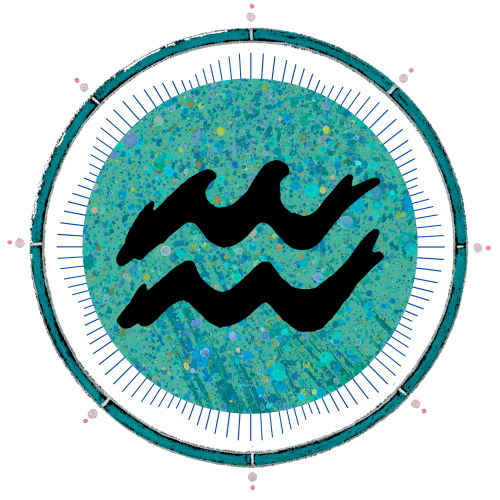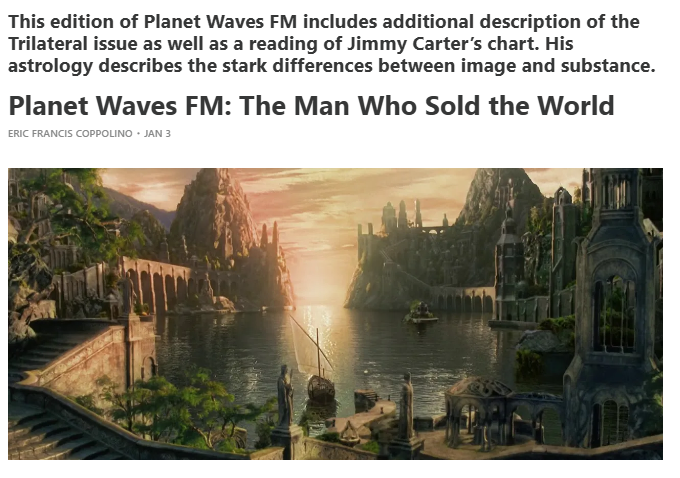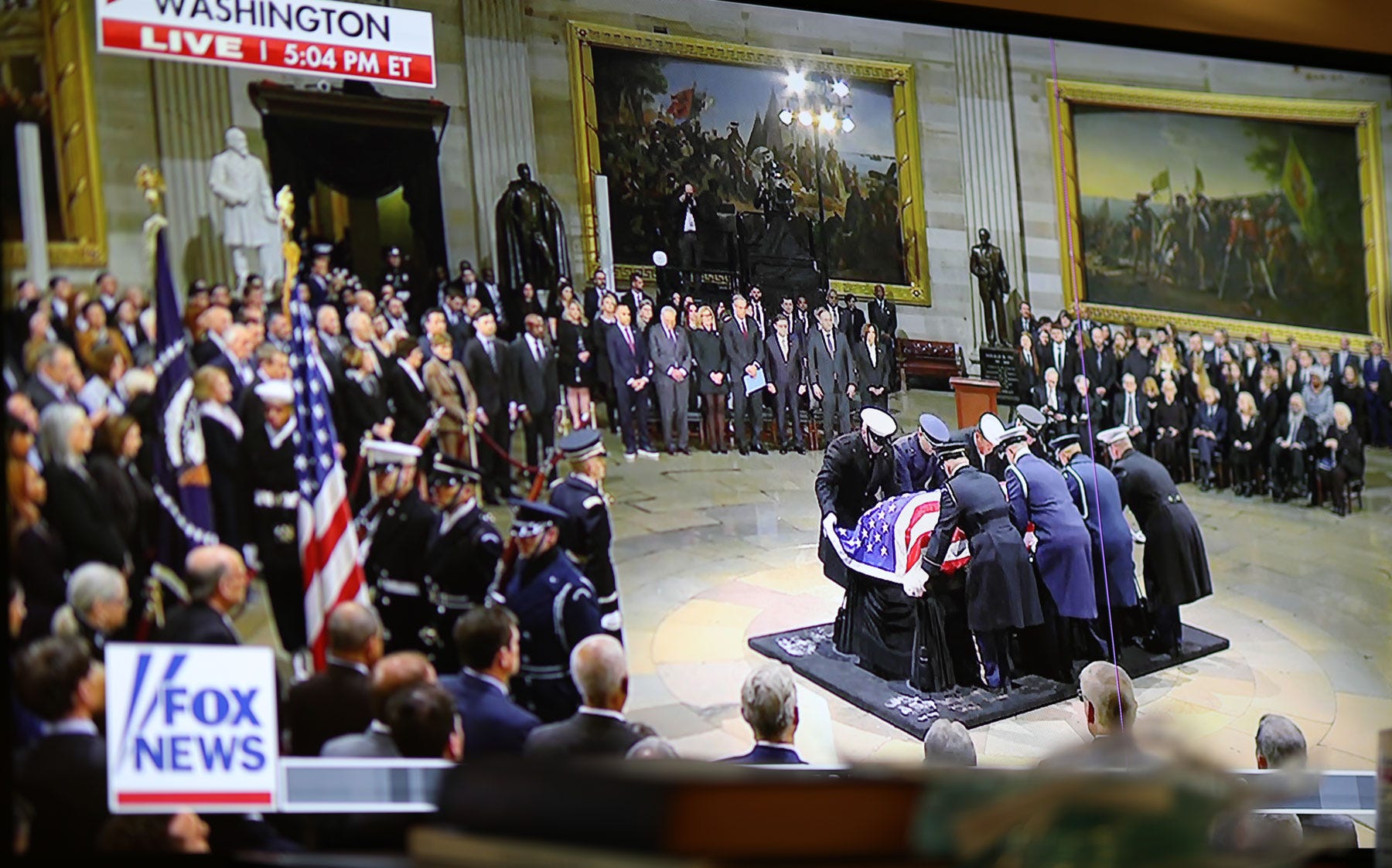
Dear Friend and Reader:
This has been quite a week for pomp and ritual in Washington, DC. On Monday was broadcast the certification of the Electoral College results, an all-day affair consisting of top congressional officials and Vice President Harris opening envelopes from the fifty states and determining that each one looked kosher. Trump was declared the winner at 1:37 pm EST.
The big news was that nobody “stormed the capitol” or “staged an insurrection.”
Previously, only the wonk who was president of the high school Political Club knew or cared about this pro-forma procedure until a fuss was made in 2021. Sadly, I forgot to wear my Electoral College sweatshirt for the occasion. (I attended and double-majored in art and hanging out.)
Tuesday, attention shifted to the Capitol Building’s exterior and then the great rotunda, as the body of Jimmy Carter made its final return to Washington for an elaborate state funeral.
He received the full customary treatment: representatives of all the armed forces present, braving the cold; the riderless horse, symbolizing the fallen leader; the solemn-looking men and ladies standing waiting under the dome for the coffin to arrive and lie in state. My God, we are still a great nation after all.
Carter’s contribution to that greatness is that he is being billed as an ordinary, cardigan-wearing, decent man who became president and wanted us to turn down the thermostat. In the day of the Datsun, he had the nerve to expect cars to get better gas mileage.
His administration was troubled, ostensibly by that very decency, but we shall remember him as a good Christian and as someone who built homes for the motivated poor. He would say things like, “The bond of our common humanity is stronger than the divisiveness of our fears and prejudices.”
And everyone thinks, what a lovely man to have as our leader. At least there was one.
The Georgian Mafia, or the International Consortium?
A wonderfully naive (and predictable) article popped up in The New York Times on Tuesday, analyzing the Carter presidency. The article made it sound like Carter and Washington didn’t get along so good because Carter was from hee-haw country and could not blend in with the posh, sophisticated Beltway political society. He liked to do things his own way, and did not take part in the usual power-brokering.
The image we have of Carter is that he would show up at cocktail parties in overalls and muddy boots wearing a straw hat. Cue the theme from the 1972 film Deliverance, which was the nation’s image of Georgia at the time. The movie focuses on the ill-fated canoe trip taken by four dumb-ass Atlanta businessmen who get in huge trouble with the rural folk: squeal like a pig and all that. And then suddenly one of those guys was president.
Reporting from Washington, Peter Baker wrote:
He never cared for the culture of the capital, never catered to its mandarins and doyens, never bowed to its conventions. The city, in turn, never cared for him and his “Georgian mafia,” dismissing them as a bunch of cocky rednecks from the hinterlands who did not know what they were doing. Other outsider presidents eventually acclimated to Washington. Not Mr. Carter. And by his own admission, it would cost him.”
I mean, it sounds good, right? Anyone who has followed politics in our lifetime has heard this over and over again. However, when I say that this theory is laughable, I mean that I’m sitting here on the verge of actually laughing.
We might ask (because nobody seems to be doing so) how exactly the peanut farmer and former Georgia governor became president at all. Was it that fantastic smile?
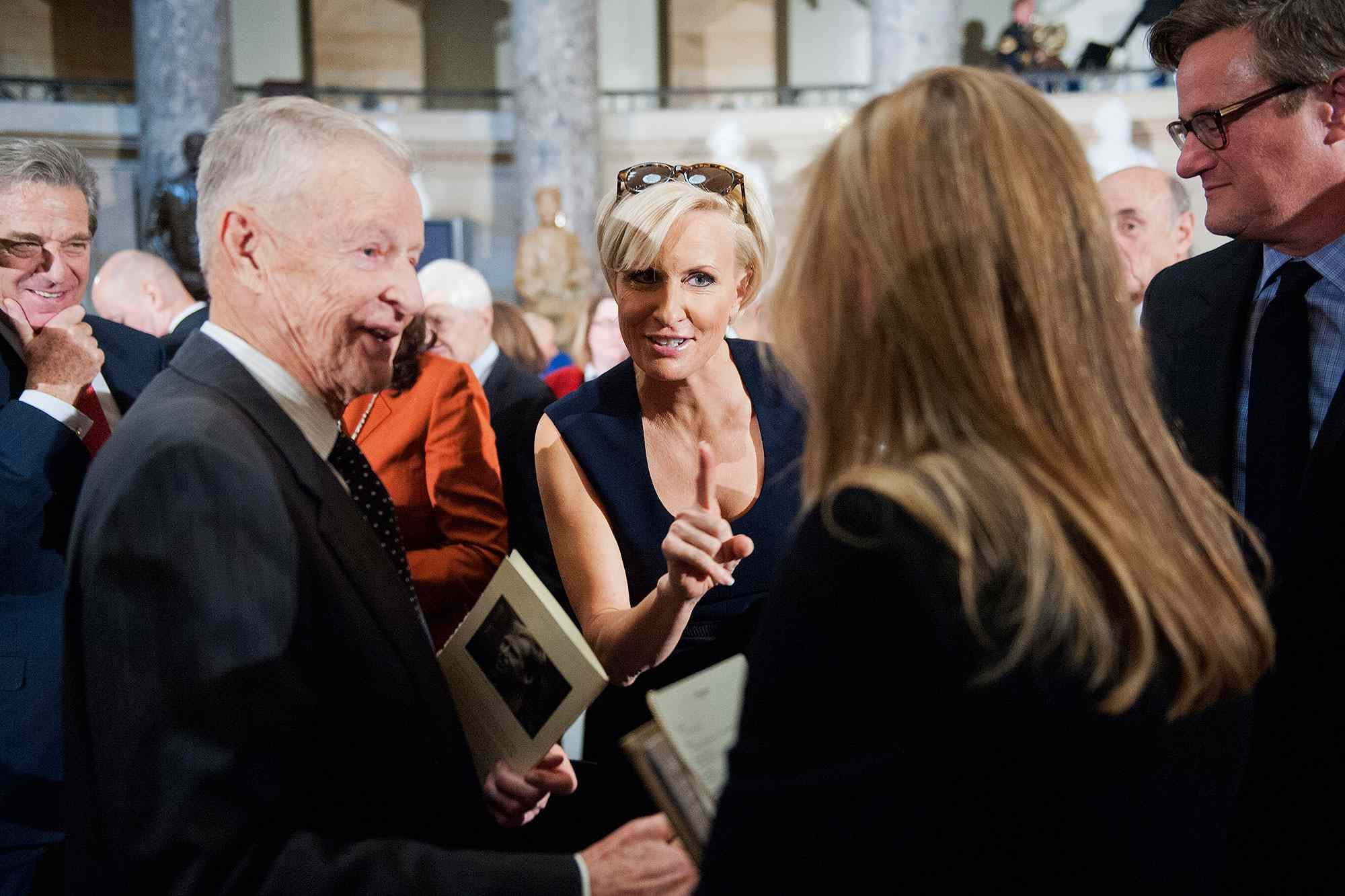
He Was Sent by the Trilateral Commission
The answer is that he was drafted for the job by a new thing formed in 1973 called the Trilateral Commission. Such was a project of David Rockefeller (1915-2017), and its creation was headed up by someone named Zbigniew Brzeziński (1928-2017). You know that name because his daughter Mika is a longtime co-host of MSNBC’s Morning Joe program, and is married to her co-host Joe Scarborough, a former congressman from Florida.
The Trilateral Commission, originally housed in the Rockefeller building in New York City, is a grand international panel consisting of members from North America, Western Europe and Asia-Pacific (originally centered in Japan). It’s kind of like the Fortune 500 with a focused agenda of concentrating political power and ramping up the militarism that continues to the present day.
The very words “Trilateral Commission” are associated with a wacky conspiracy theory, which is why you have not read about this issue in any of the commentary about Carter. Nobody else wants to touch it; they might become associated with the guy in the Student Union with the beard and flannel shirt who talks about it all day and has never once registered for class.
But we’re far from the nebulous Q-Anon theory of the “deep state” or the Freemason-obsessed people posting pictures of cardinals claiming they secretly run the world.
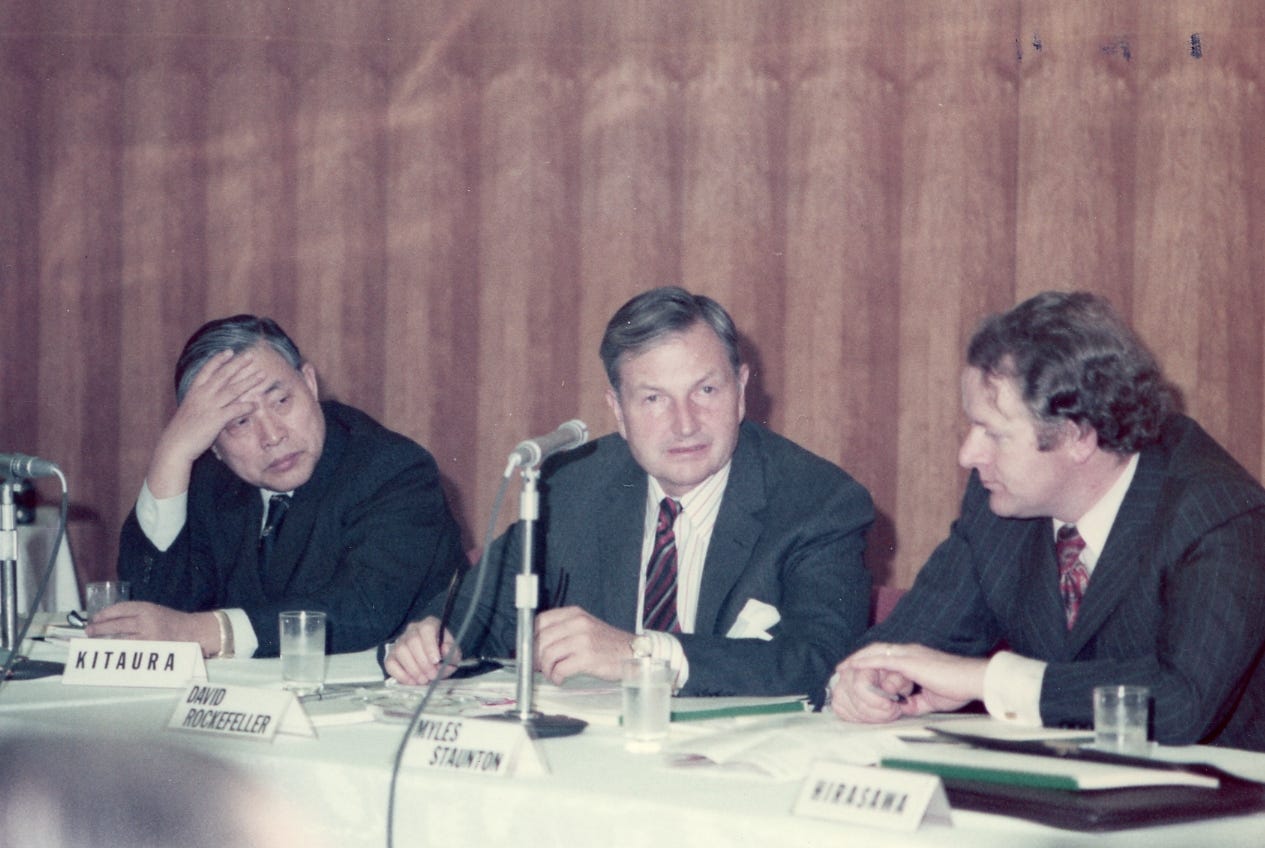
Carter was an Original Trilateral Member
Jimmy Carter himself was a founding member of the Trilateral Commission, referred by John Paul Austin (1915-1985), then head of Atlanta-based Coca-Cola. Walter Mondale, Carter’s vice president, was a member, as was Cyrus Vance, Carter’s secretary of state, along with his defense secretary, Harold Brown.
Brzeziński, who pulled the whole project together, became Carter’s national security advisor. AI accurately reports: “Essentially, most of the top foreign policy figures in the Carter administration were Trilateral Commission members.” About half of Carter’s cabinet were listed as “former members in public service.” The same was true of every president for the remainder of the 20th century and well into the 21st.
Carter loved this new organization, which had him being an important guy attending international gatherings and getting lots of free airplane rides. He was one of its best evangelists, distributing its literature at high society gatherings and never missing a meeting. When Rockefeller decided that it was time for a folksy southerner to be president of the United States, they had the man for the job.
Because the Trilateral Commission included many wealthy people and also those with media influence, they had the ways and the means to make it happen. Therefore, when Carter and his retinue showed up in Washington in January 1977, the animosity about him being an “outsider” had nothing to do with peanuts.
It was an invasion by an international cabal with a farmer as its figurehead and David Rockefeller in charge. He didn’t need to answer to Tip O’Neill. He knew who his bosses were and what side his bread was buttered.
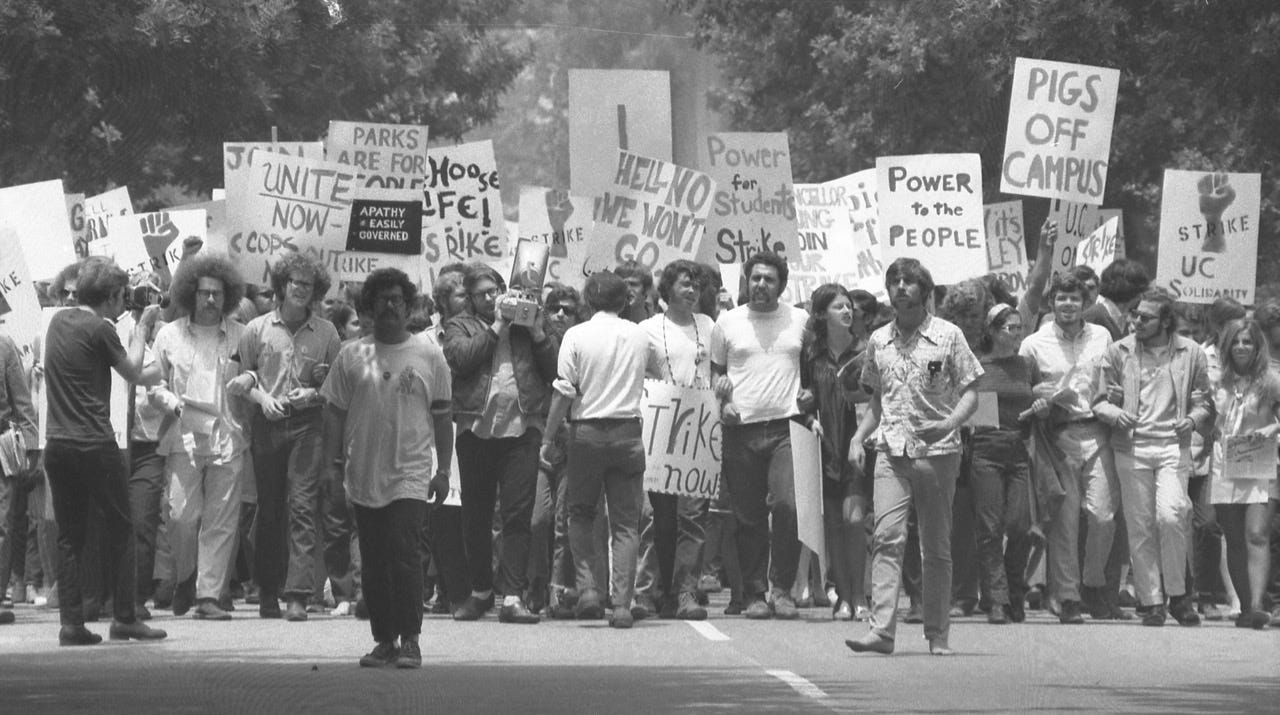
The Crisis of Democracy
Trilateralism is a political theory as well as an organization. The theory was expounded in a 1975 publication of the commission, called The Crisis of Democracy: On the Governability of Democracies. This is its most famous publication and it was probably a mistake to let its contents into the public realm.
The “crisis of democracy” referred to was the participation in governance of the country and its institutions spurred by the counterculture and civil rights movements from the 1950s through the early 1970s. Part of the crisis involved the public demand for less spending on the military and more spending on social programs.
Also, ordinary people don’t really like wars; they have to be brainwashed into supporting them. Nobody is gung-ho to invade another country when they’re out on a date, eating some New York pizza or chowing down at a fabulous barbecue. Especially after Vietnam, they didn’t want to send their sons to die in any jungle.
“In the United States, the strength of democracy poses a problem for the governability of democracy in a way which is not the case elsewhere,” the report says. In other words, the growing diversity of voices in American society, and the tendency toward social freedom under a liberal form of governance makes it difficult to muster up popular support for a massive war machine.
Remember, the horribly unpopular United States involvement in Vietnam had just ended two years earlier, and the failure of the U.S. was largely blamed on anti-war activists and the attention they received on television. And Carter, at the bidding of the Trilateralists, invited some of its worst actors into his administration.
While the Trilateral Commission is essentially descriptive of an oligarchy — rule by the rich and powerful, which is nothing new — they admit that the old forms of maintaining that control were no longer working in contemporary society (because democracy had “distemper”), and a more organized and structured approach to maintaining control over people and business would be necessary.
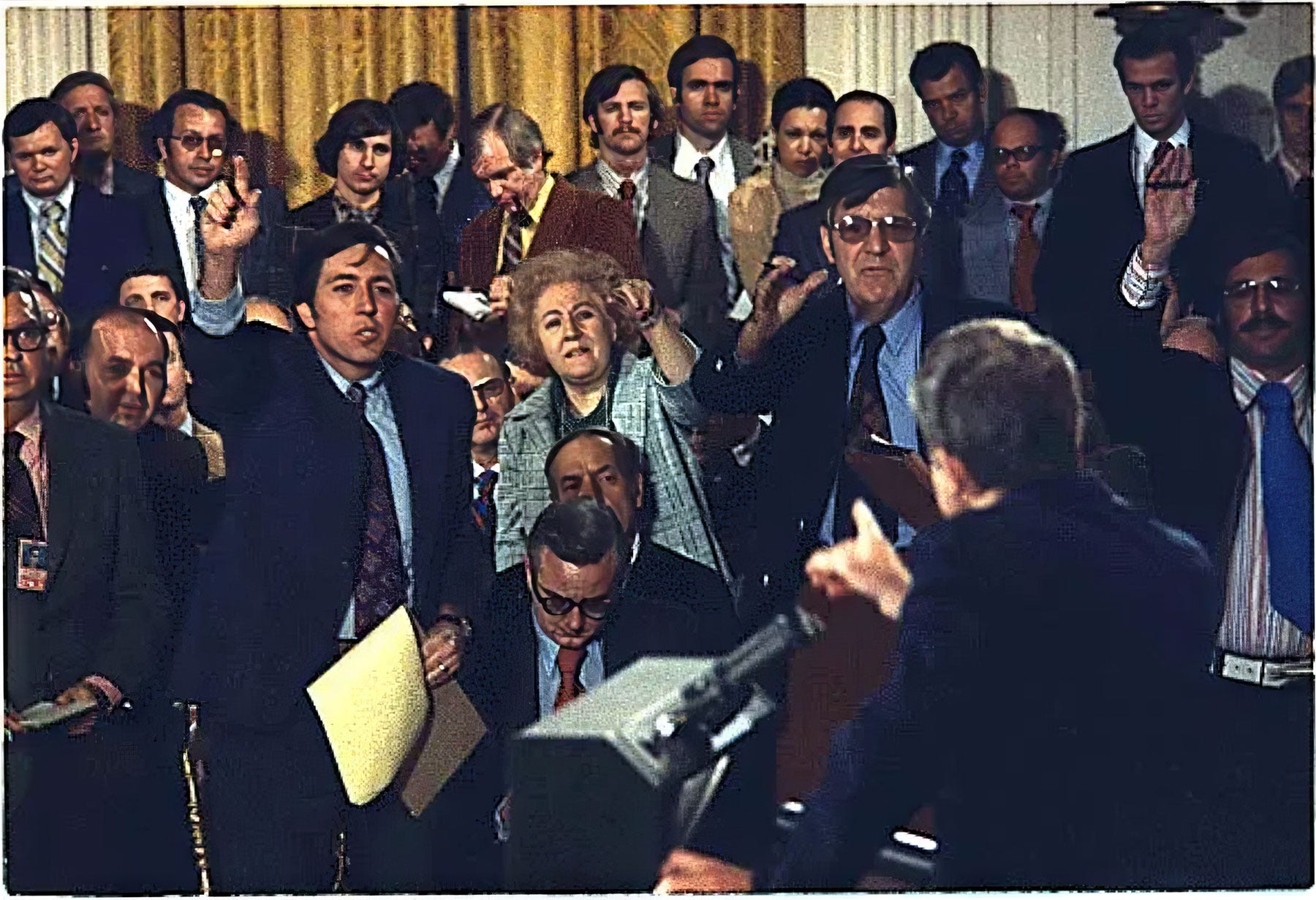
The Problem of the Media
Here is another quote from Crisis of Democracy that puts this idea into context:
For a stunning look at how “the media” changed in the post-Trilateral world, check out Pres. John F. Kennedy’s first televised news conference. Hundreds of reporters from all around the world were present and asking real questions. Today, presidential press conferences are more like this.
Also remember that in the pre-Trilateral world, Washington Post reporters Woodward and Bernstein teamed up with “Deep Throat,” Mark Felt (then the assistant director of the FBI) to bring down Richard Nixon.
The solution here was to bring the media under Trilateral control. Soon after, Post publisher Katharine Graham was invited into the fold and served on the commission. By 1980, all of the major owners were represented on the Commission and following its agenda. This began with founding member Hedley Donovan, the editor in chief of Time, Inc. — in its day one of the great media giants of all time.
The concern over civilian and press participation extended into how political campaigns were run. The Trilateralists were concerned about “a sharp increase in campaign activity in the 1950s following which it remained on a high plateau in the 1960s. The Goldwater, McCarthy, Wallace, and McGovern candidacies mobilized unprecedented numbers of volunteer campaign workers. In addition, the Republicans in 1962 and the Democrats subsequently launched a series of major efforts to raise a substantial portion of their campaign funds from large numbers of small “givers.” This idea did not start with Bernie Sanders, but Sanders, a populist, mastered this technique and was made to go away.
So according to the Trilateral Commission’s one published report, the “crisis of democracy” included actual people participating in elections — whether in support of Democrats or Republicans, liberals or conservatives. It did not matter what side: the participation was the problem.
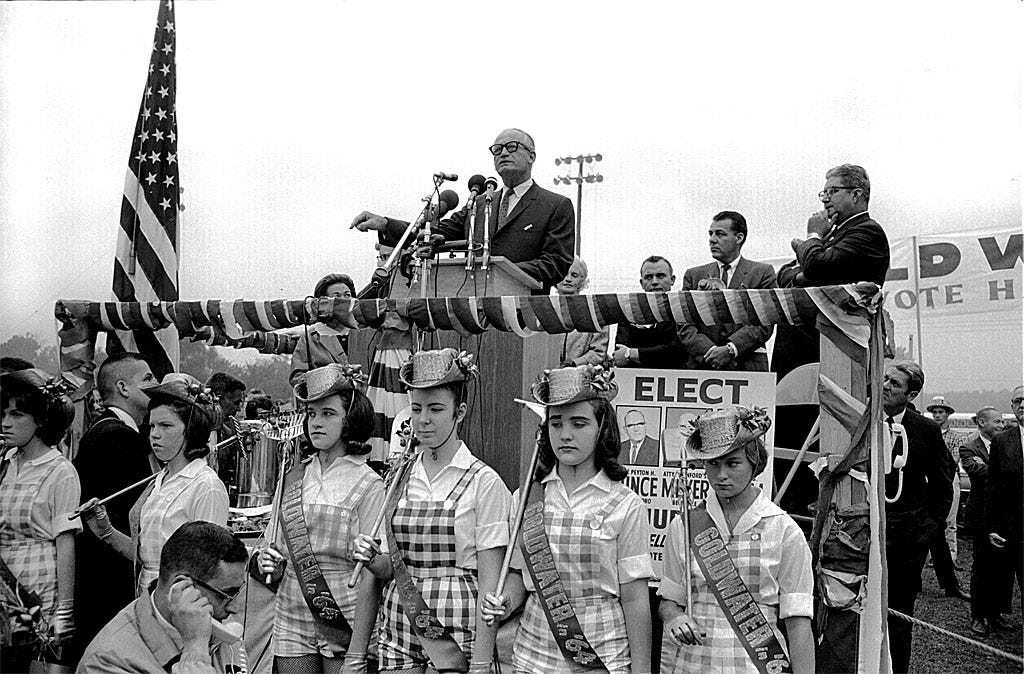
Democracy is Great if People Don’t Actually Use It
As one commenter on Goodreads put it so aptly:
“The reason this book is still remembered today is because it says that democracy is fine as long as citizens don’t actually use it. By actually employing democracy to wield the levers of power citizens somehow undermine the viability of democracy. Ideally, according to this book, democracy is really only supposed to be a veneer that allows the wealthy and powerful to run things the way they always have. This notion is vile. This book is vile.”
He continues, “But, considering the source, this thesis should come as no surprise. The Trilateral Commission is made up of wealthy and powerful people. In the mid-70’s they were wringing their hands because they saw their power eroding as angry citizens made progress in the anti-war and civil rights movements.”
The commenter seems unaware that the “book” is actually a corporate report that lays out a political agenda whereby the influence of the military-industrial complex was solidified into a power structure that demonstrably took possession of the all-powerful Executive Branch.
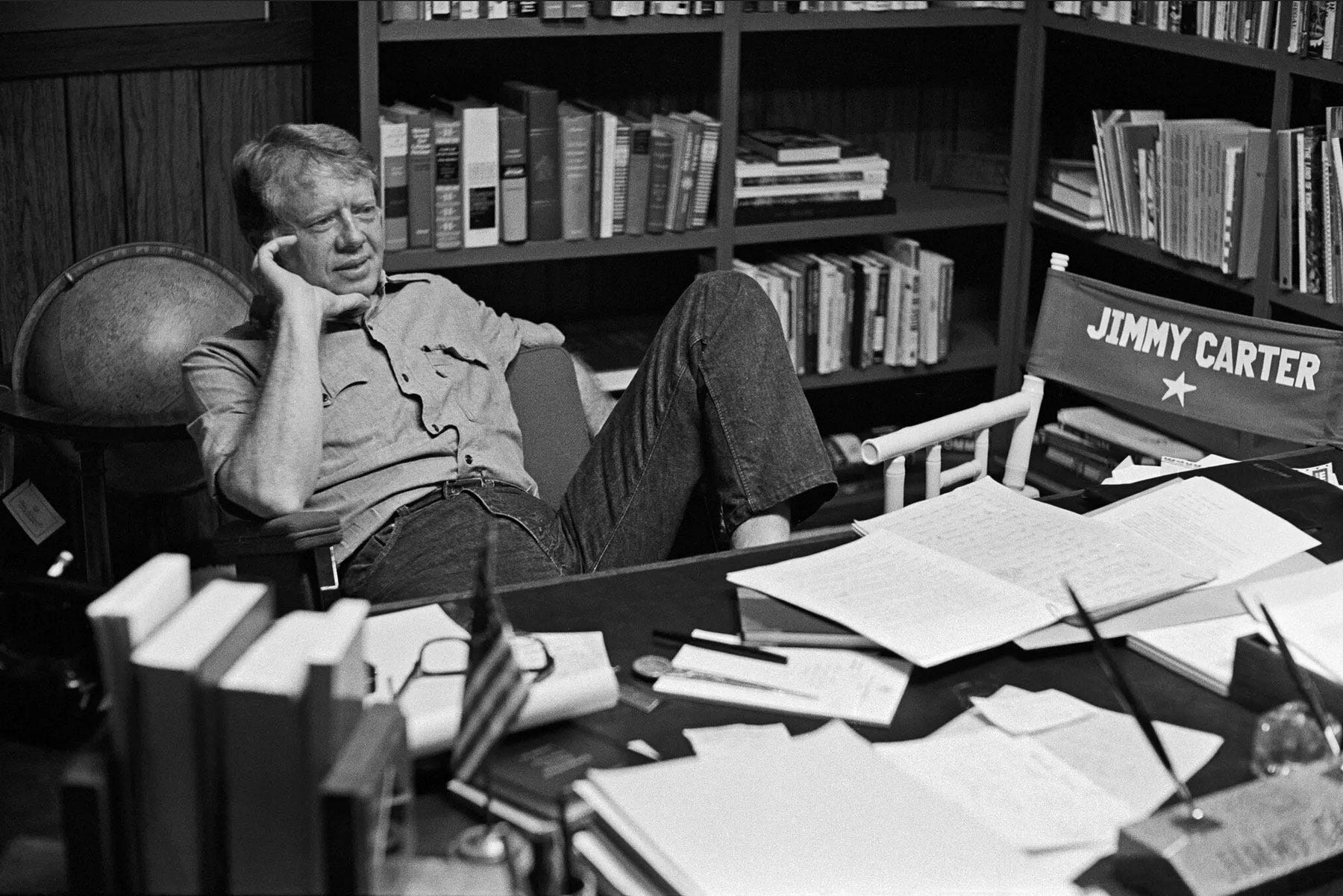
Which Brings us Back to the Peanut Farmer
What I have described above is what Jimmy Carter actually brought to Washington, or perhaps more accurately, those who sent him to Washington to do their bidding. I’ve been covering this on Planet Waves FM the past couple of weeks — and I seem to be the only one taking this angle.
Those who have not forgotten this whole chain of events are likely to be concerned with having the “conspiracy theory” finger pointed at them, but this hardly qualifies because it is so well documented.
The problem extends right up to the defining moment of the 21st century, the Sept. 11, 2001 incident. This was the “galvanizing, Pearl Harbor-like event” early in the 21st century predicted in the Bush Administration’s manifesto, the Statement of Principles of the Project for the New American Century.
This idea comes from the mind of Trilateral Commission organizer Zbigniew Brzeziński, discussed in his 1997 book The Grand Chessboard. In that book, Brzeziński wrote:
“It is also a fact that America is too democratic at home to be autocratic abroad. This limits the use of America’s power, especially its capacity for military intimidation. Never before has a populist democracy attained international supremacy. But the pursuit of power is not a goal that commands popular passion, except in conditions of a sudden threat or challenge to the public’s sense of domestic well-being. The economic self-denial (that is, defense spending) and the human sacrifice (casualties, even among professional soldiers) required in the effort are uncongenial to democratic instincts. Democracy is inimical to imperial mobilization.”
And imperial mobilization is the whole point of Trilateralism, a term that is synonymous with global dictatorship and one-world government.
So if you want to control highly strategic Afghanistan, a place nobody much cares about and which poses no threat to the U.S., you have to create a fake terrorist attack. Tell me, what exactly was the connection between Osama bin Laden and Afghanistan, ostensibly leading to 20 years of bombing?
Yet Afghanistan had a backstory: Brzezinski had initiated an Islamic insurgency there in July 1979, which lured the Soviet Union into a trap, something he bragged about in a 1998 interview. This started the entire process of the nation’s disintegration and enabled the invasion by US forces in October 2001 using 9/11 as an excuse.
You cannot sell this kind of program to the public honestly. But you can definitely sell Jimmy Carter. Now there’s a real American who worked his way up from the dirt (and the nuclear Navy) and who didn’t remind anyone of mean old Richard Nixon.
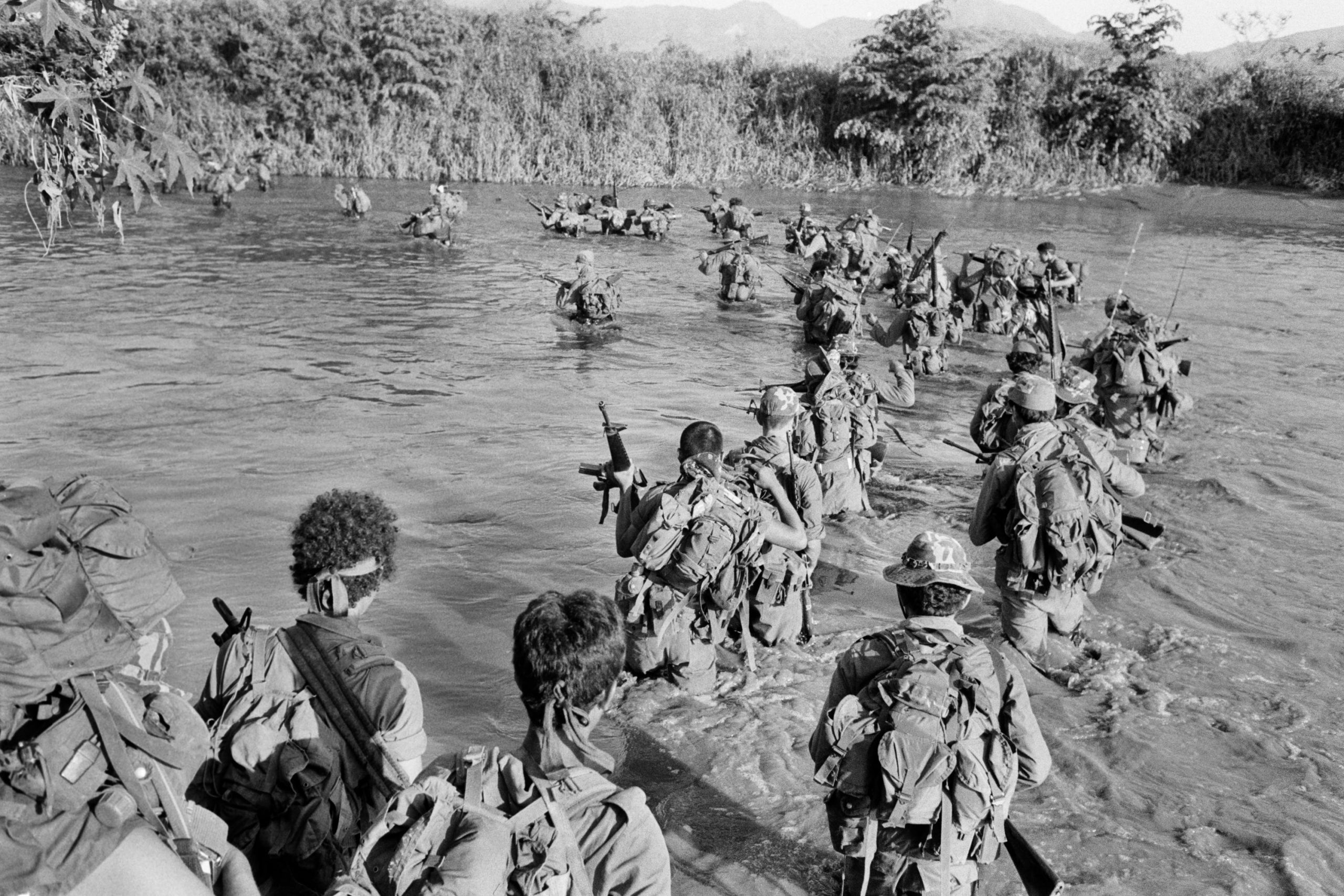
A Long Litany of Global Crimes
Carter and his all-Trilateral group of military cabinet members escalated state terror in El Salvador, crushed democracy in South Korea, gave full support to Indonesia’s near-total genocide in East Timor, and maintained or increased funding for the Shah of Iran, Somoza, Marcos, Brazil’s neo-Nazi generals, and the dictatorships of Guatemala, Nicaragua, Indonesia, Bolivia, and Zaire. He sold out the Palestinians during the peace talks between Egypt and Israel. And he withdrew from the Strategic Arms Limitations Talks (SALT II).
He was a supporter of the Khmer Rouge (of “killing fields” fame). His support for the deposed Shah of Iran is likely to have led to the taking of American hostages that famously led to his loss in the election of 1980.
Carter’s secretary of state, Cyrus Vance, was a Wall Street lawyer and former planner of the Vietnam slaughter. Secretary of Defense Harold Brown was Lyndon Johnson’s Air Force secretary and a leading proponent of saturation bombing in Vietnam. Energy coordinator James Schlesinger was a proponent of “winnable” nuclear war.
Carter was the product rep for all this. “Turn down the thermostat” was his sales pitch and cover story. While everyone was throwing tomatoes at him, his men were wreaking havoc around the world.
When they no longer needed Jimmy Carter, they put Trilateral Commission member and former CIA director George H. W. Bush into the White House as “vice president” to supervise the so-called Reagan administration, which continued all of these policies.
So, now Jimmy Carter has become an American saint, the ordinary American who made it to the top; the guy who did not chop down the cherry tree; who was a salt-of-the-earth farmer, minister and Sunday school teacher; and the kind and friendly man who was renowned for his alleged genuine decency and his big smile even if he was a considered a lousy president.
Sadly, few know of his greatest achievements — and now you do.
With love,
Your faithful astrologer,

Additional writing and research: Michael Bryant, Peter Shipley, Jeffrey Strahl



